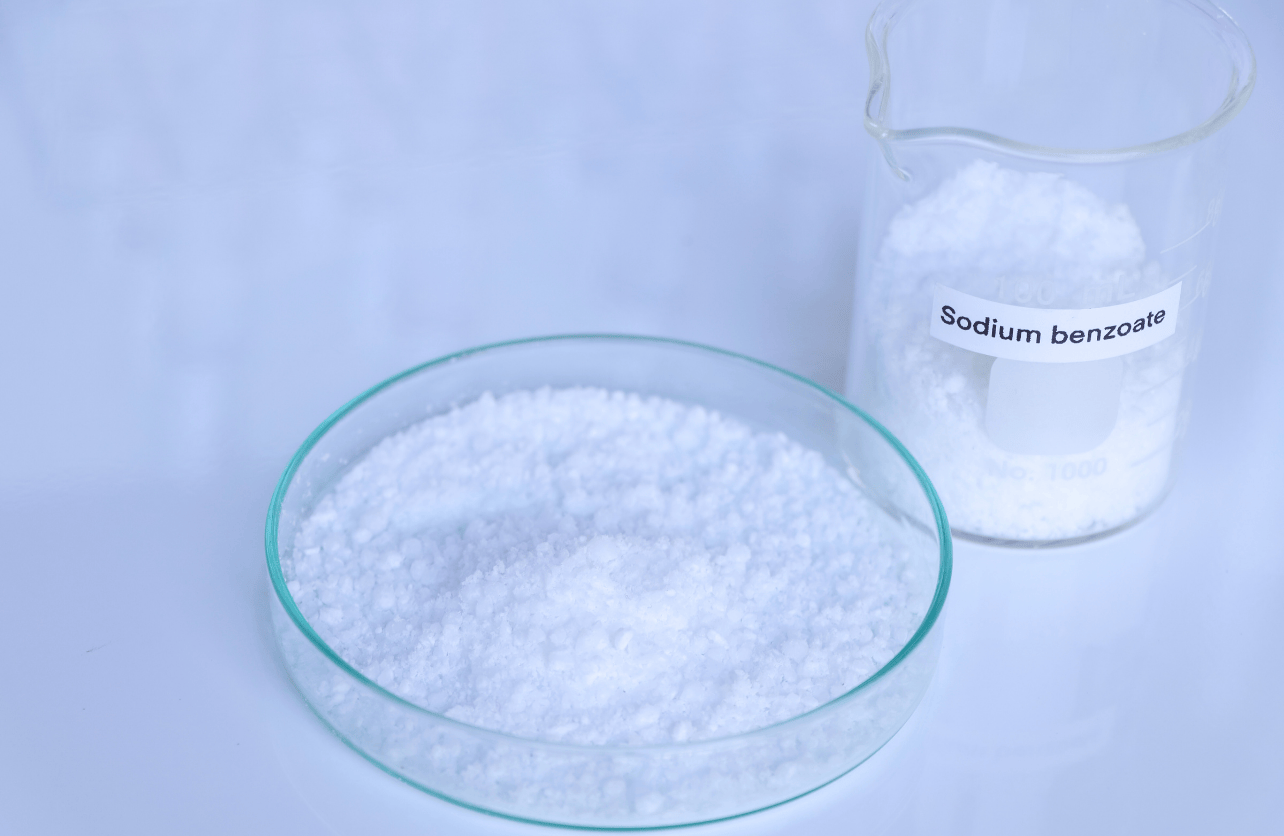Is Sodium Benzoate Safe?

Sodium benzoate is a common preservative used in a wide variety of products, from food and beverages to cosmetics and pharmaceuticals. Known for its ability to inhibit the growth of harmful bacteria, yeast, and fungi, it is particularly valuable in extending the shelf life of products. But despite its widespread use, questions about its safety have sparked ongoing debate. This article delves into the safety of sodium benzoate, exploring its uses, potential risks, and regulatory status.
What is Sodium Benzoate?
Sodium benzoate is the sodium salt of benzoic acid. It naturally occurs in some fruits, such as cranberries, plums, and apples, but is often synthetically produced for commercial use. It works by creating an environment that is inhospitable to microbial growth, especially in acidic conditions. This makes it particularly effective in products like carbonated beverages, fruit juices, and pickled foods.
Regulatory Status and Safe Limits
Globally, sodium benzoate is considered safe when used within recommended limits. In the United States, the Food and Drug Administration (FDA) has classified it as Generally Recognized As Safe (GRAS), with its use in food products permitted at concentrations of up to 0.1% by weight. Similarly, regulatory bodies like the European Food Safety Authority (EFSA) and the World Health Organization (WHO) also approve its use within specified limits.
Potential Health Concerns
Benzene Formation
One of the most discussed risks associated with sodium benzoate is its potential to form benzene, a known carcinogen. This occurs when sodium benzoate is combined with ascorbic acid (vitamin C) under certain conditions, such as exposure to heat or light. Benzene formation has been observed in some beverages, raising concerns about consumer safety.
Regulatory agencies, including the FDA, have conducted extensive testing on beverages containing sodium benzoate. Most were found to have benzene levels well below the Environmental Protection Agency’s (EPA) limit of 5 parts per billion (ppb) for drinking water. When products exceeded this threshold, manufacturers were required to reformulate them to ensure compliance.
Allergic Reactions
Although rare, sodium benzoate can trigger allergic reactions in some individuals. Symptoms may include itching, swelling, hives, or respiratory issues. Those with pre-existing sensitivities to benzoic acid or related compounds should be cautious.
Impact on Hyperactivity
Some studies have explored the link between sodium benzoate and hyperactivity in children, particularly when combined with artificial food dyes. Research suggests that this combination may contribute to increased hyperactive behavior in certain children, though evidence is not conclusive. Parents of children with ADHD may choose to avoid products containing sodium benzoate as a precaution.
Additional Considerations
While sodium benzoate has shown no severe health risks in typical concentrations, excessive consumption of processed foods and beverages containing the preservative could lead to cumulative exposure. As with most additives, moderation is key to minimizing potential risks.
Is Sodium Benzoate Safe for Everyone?
Sodium benzoate is generally safe for the majority of the population when consumed within regulatory guidelines. However, certain individuals may need to exercise caution:
- Pregnant and Nursing Mothers: While no direct risks have been conclusively identified, it is advisable to limit exposure to unnecessary additives during pregnancy and breastfeeding.
- People with Specific Allergies: Those sensitive to benzoic acid or related substances should read labels carefully.
- Health-Conscious Consumers: If you aim to reduce your intake of processed foods, avoiding products with sodium benzoate can align with broader health goals.
The Bottom Line
Sodium benzoate plays a critical role in food preservation, ensuring the safety and longevity of countless products. Regulatory agencies worldwide recognize its safety when used appropriately, but potential risks, such as benzene formation and rare allergic reactions, highlight the importance of adherence to guidelines. As with any food additive, informed choices and moderation are essential for maintaining overall health. Whether you’re scanning a product label or considering dietary adjustments, understanding the role and risks of sodium benzoate can help you make better-informed decisions.
Building a Stronger You
Supplement Institute is the fruit of extensive online publishing experience, spanning the breadth of SEO strategies to the nuances of paid advertisements. Our journey, marked by significant achievements and learning moments, inspires our core mission: to empower our readers with an abundance of information. By sharing insights and key learnings, we aim to provide you with the knowledge needed to navigate the complex world of supplements, helping you make well-informed decisions for your health and well-being. Welcome to Supplement Institute, where information is your greatest supplement.